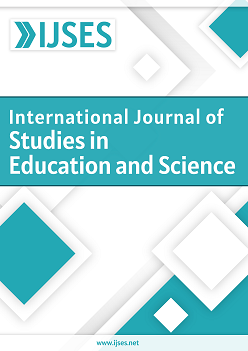Deciphering Baseline Rates in Developmental Mathematics Education Through the Lenses of Justice, Equity, Diversity, and Inclusion
DOI:
https://doi.org/10.46328/ijses.132Keywords:
Developmental Mathematics, Best Remediation Practices, College Readiness, Persistence Rates, Corequisite Courses, EquityAbstract
Around fifty-five and twenty-three percent of US students entering two-year community colleges and four-year higher education institutions, respectively, are not ready for college courses. This process is quite costly, costing up to an estimated $7.5 billion a year. This retrospective research project will focus on Developmental Mathematics Education at Texas Woman’s University, the largest university system focused on women as well as a Hispanic-Serving Institution. A decade-long developmental mathematics education data set is used to decipher the baseline rates such as pass rates (with grades A, B, C), fail (F) and withdrawal rates (W). Statistical analyses such as exploratory data analysis and trend analysis will be employed. Equity-minded and inclusive institutional practices are presented. This paper reports a few equity-minded research-based practices that had a tremendous positive influence to increase the success of almost all DME students at TWU.References
Navarra-Madsen, J. (2025). Deciphering baseline rates in developmental mathematics education through the lenses of justice, equity, diversity, and inclusion. International Journal of Studies in Education and Science (IJSES), 6(1), 19-28. https://doi.org/10.46328/ijses.132
Downloads
Published
Issue
Section
License
Copyright (c) 2024 International Journal of Studies in Education and Science

This work is licensed under a Creative Commons Attribution-NonCommercial-ShareAlike 4.0 International License.
Articles may be used for research, teaching, and private study purposes. Authors alone are responsible for the contents of their articles. The journal owns the copyright of the articles. The publisher shall not be liable for any loss, actions, claims, proceedings, demand, or costs or damages whatsoever or howsoever caused arising directly or indirectly in connection with or arising out of the use of the research material.
The author(s) of a manuscript agree that if the manuscript is accepted for publication in the International Journal of Studies in Education and Science (IJSES), the published article will be copyrighted using a Creative Commons “Attribution 4.0 International” license. This license allows others to freely copy, distribute, and display the copyrighted work, and derivative works based upon it, under certain specified conditions.
Authors are responsible for obtaining written permission to include any images or artwork for which they do not hold copyright in their articles, or to adapt any such images or artwork for inclusion in their articles. The copyright holder must be made explicitly aware that the image(s) or artwork will be made freely available online as part of the article under a Creative Commons “Attribution 4.0 International” license.

This work is licensed under a Creative Commons Attribution-NonCommercial-ShareAlike 4.0 International License.





